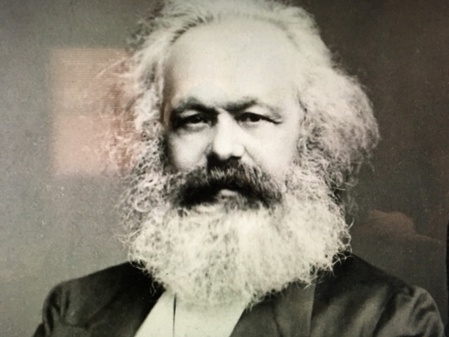Half a century before the Russians mustered enough rebellion to depose the Czar, a deep current of discontent had begun oozing up from somewhere deep down in those thawing Russian steppes.
Since that era, we have come to call what that discontent represents: The Underground.
Russian writer Fyodor Dostoevksy caught and early wind of it. In his 1864 novel, Notes from the Underground, Dostoevsky identified and fictionalized an uncomfortable alienation that (he noticed) was mounting up among certain attentive and sensitive citizens of that restive country.
This alienation has, since then, become a characteristic of modern life.
In our day and time, Canadian psychologist Jordan Peterson points out that Dostoevsky and other writers (most notably Friedrich Nietzsche) detected this early alienation and wrote extensively about it.
There was, you see, a deep, dark void in the European soul.
It was there. . . deep down in there, somewhere in the metamorphizing life of the 1800’s . . . a sense that something was missing . . . something important, something—it must be something— essential.
Where some spiritual or soulful entity had, through many ages, carried European civilization along a certain path of cultural development, now there was nothing.
“Nihilism” is a word that was brought in to identify that void.
In our day and time, Jordan Peterson explains the development of nihilism—how it is related to the lapse the Church, which had formerly evolved as a religious matrix around which the framework of European civilization and culture had manifested across almost two millennia of time.
Dr. Peterson attributes the identifying of this nihilism primarily to those two 19th-century writers, Dostoevsky and Nietzsche. In his lectures, Dr. Peterson often mentions that these two prescient thinkers predicted—or one could almost say “prophecied”—the horrible carnage of our 20th-century wars. Our two modernized hyper-mechanized destructive wars broke out as modern men desperately strove—through futile attempts at communist and fascist totalitarianism—to establish a meaningful State, or Society.
Instead of—let’s just say— the Church. Comprenez-vous?
Denizens of “the Underground” are those misplaced souls who have searched elsewhere—apart from the Society or Culture at large—for their own meaning or identity. Even further than that, they will likely work collectively with other fellow travelers, striving for some collective opus that enables us—if not now, in the future— to live and thrive together.
When I was a young man, I composed a song about some of these deep urges toward meaning and liberty.
Underground Railroad Rides Again
I have empathy for the Undergrounders of this world, although some of them have, from time to time, carried their discontents too far, beyond the rightful constraints of decently civilized life. The Weather Underground of the 1960’s, for instance, crossed that line of acceptable protest when they began making home-bombs, one of which enabled one Undergrounder to blow up himself and his whole dam NYC apartment building, in spring of 1970.
But hey! Life goes on, in spite of all the abuse and injustices people pile on one another. In spite of all our myriad societal dysfunctions. The world persists in its predictable revolutions, whether you approve the changes or not. Nations change. Seasons come and go. Our winters of discontent always as mellow out as . . .
a new wind, a fair breeze, and this year’s equinox a day early!
Now in 2020 A.D., about midday on this first spring day, 19 March, I was strolling along our local greenway, here in our little town of the Blue Ridge, observing obligatory social distancing protocols mandated by the COVID-19. When my walk began, the weather was dreary, misty and chilly. But as I neared the turnaround point of my 3-mile path, the sun was peeping out from behind the clouds, the air turned amazingly warm and dry, and suddenly! spring has sprung!
‘T’was then I encountered an Underground of different sort:
This springtime sprung-up version of the Underground has been popping up with alarming regularity for a very long time. . . far longer than we homo sapiens have been struggling to find meaningful identity in our civilizations.
As I beheld these silly-pilly little dirt mounds, I disclosed the discovery to myself . . . (as they say on the video spy dramas) what we have here is mole!





